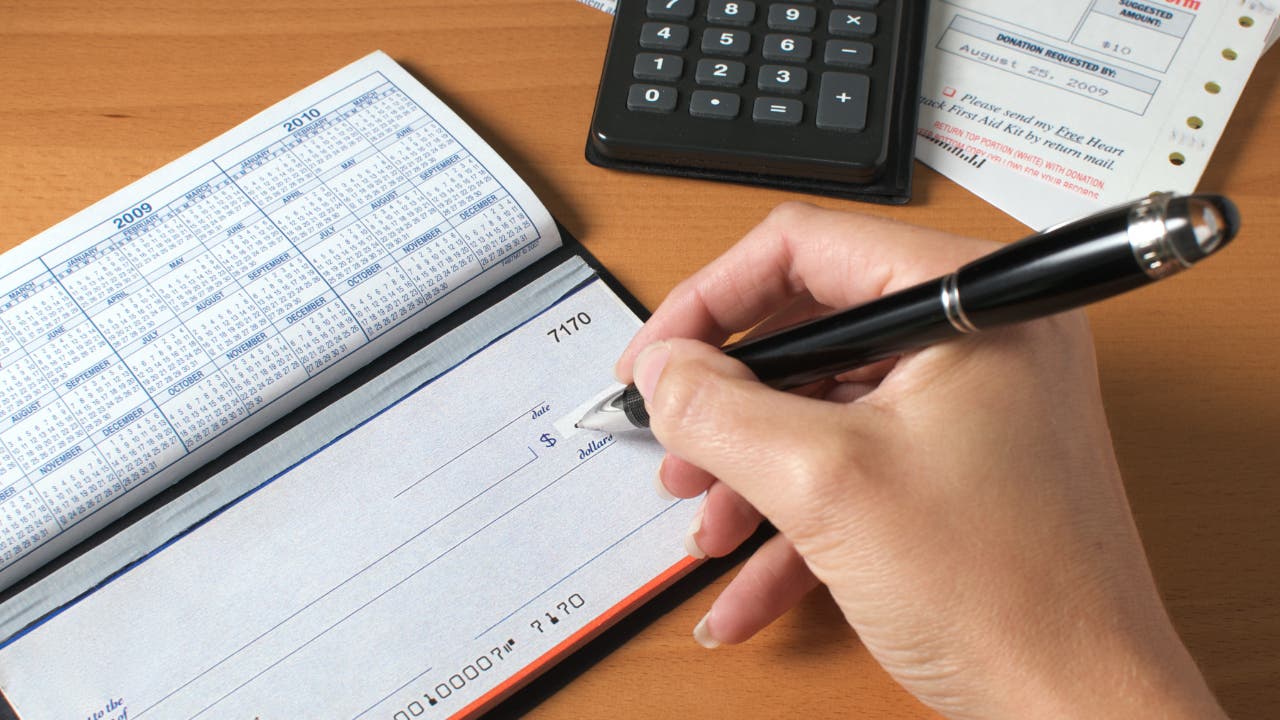
When a check bounces, you may be left with a sinking feeling. What happens next?
Here is a closer look at the details of why a check might bounce and how to avoid it.
What is a bounced check?
First things first, what exactly is a bounced check? Essentially, a check will bounce if there aren’t enough funds to cover the expense. Although there are a few other reasons why a check may bounce, insufficient funds is a common issue consumers run into.
A bounced check means that the payee doesn’t receive his funds, and you will face the financial consequences.
What happens if you write a check without enough funds in your account?
When a check bounces, you will have to deal with the consequences. Here are a few scenarios to be aware of:
Bank fees and penalties
The first repercussion of a bounced check is that your bank will likely charge you a penalty. Although the exact fee will vary based on your banking institution, the average overdraft fee was $33.47 in 2020.
In most cases, you should expect to pay $25 or more. Unfortunately, that can add up quickly.
Outstanding bills
When you write a bounced check, the payee will not receive the promised funds. For example, let’s say you write a bad check to a local business owner for a service completed. When the business goes to cash the check, it will not receive the funds because your check has bounced.
You will still owe the business the missing funds and will have an outstanding bill to the company until you can pay them.
ChexSystems issues
ChexSystems is a consumer reporting agency that helps banks and other financial institutions assess a potential customer’s reliability. Essentially, your ChexSystems report provides an overview of the risks you present to a bank when you apply for an account.
If you have a history of writing bounced checks, then your ChexSystems report will not paint a good picture of your financial responsibility. With that, you could find it difficult to open bank accounts in the future.
Closed bank accounts
If you frequently write bad checks, you may run into long-term issues with your bank. At some point, the bank may decide that you’ve written too many bad checks. When that happens, the bank could potentially freeze or close your account completely.
Although this is an extreme consequence, it is a possibility. You should talk with a bank representative if you believe you are skating close to the line of too many bad checks. If you are proactive about the situation, they may be more willing to work with you.
Why do checks bounce?
So, what makes a check bounce? Let’s find out.
Insufficient funds
“The most common reason for a check to bounce is when there are insufficient funds to cover the check amount,” says Dr. Salvador Gonzales, a professor at Walden University.
For example, let’s say you write a check for $1,500. But you only have $1,000 in the bank. When the payee goes to cash the check, it will bounce because you don’t have enough funds to cover the amount written on the check.
Not only will your check bounce, but you will also have to pay a fee for writing a check with insufficient funds available.
Stale dating
Another reason a check may bounce is that, “the check is considered ‘stale’ or ‘stale-dated’ which refers to the check not being cashed within typically six months,” explains Jacob Dayan Esq, CEO of Community Tax.
At that point, you may need to reissue a check for the payee to cash. However, you can contact your bank about their preferred protocols for handling a stale check.
Missing information
If the check in question has incorrect or missing information, then it could bounce. A few things to watch out for include:
- Dating the check correctly
- Ensuring the figures and words written match
- Confirming that your signature is legible
How to prevent writing a bad check?
A bounced check is something that should be avoided. Not only can it be an embarrassing situation with the payee, but it can also lead to extra penalties from your bank.
Steve Orlowski, a financial planning expert, recommends adding an overdraft line of credit to your account. “This is a loan that will automatically go into effect if your bank runs out of money,” he says.
“For instance, if you have $900 in your account, and you write a check for $1,000, the overdraft line of credit will cover the $100 discrepancy. You just borrowed $100 from the bank that you’ll have to pay back with interest.”
Additionally, Orlowski recommends signing up for helpful alerts if you bank online. With that feature, the bank will automatically let you know if your account balance dips below a dangerous threshold. For example, you could create an alert for any time your account drops below $100. When you receive the alert, you’ll know that you cannot write any checks for now.
Learn more:
"avoid it" - Google News
October 28, 2020 at 10:24PM
https://ift.tt/35HeNHN
What is a bounced check and how do you avoid it? - Bankrate.com
"avoid it" - Google News
https://ift.tt/3844a1y
https://ift.tt/2SzWv5y

No comments:
Post a Comment